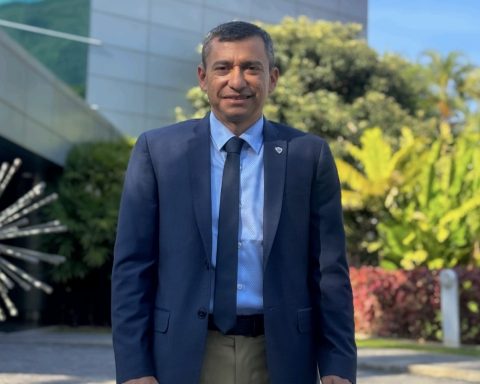experts from harvard, Columbia University, the University of Miami, and the University of Massachusetts detailed the implications of the dream for health in a conversation with the health journalist from the CNN Jacqueline Howard Thursday at the Harvard TH Chan School of Public Health.
“Sleep is associated in many ways with mortality: cardiovascular disease, diabetes, mental health, brain health, immune function, respiratory conditions, and cognitive function and performance,” said Azizi Seixas, an associate professor at the University of Miller School of Medicine. of Miami.
He and other speakers discussed the health risks of long-term sleep deprivation and the critical role sleep plays in memory. According to Rebecca Spencer, Professor of Psychology and Brain Sciences at the University of Massachusetts, “When you sleep, you take a movie of the day and replay it, which is a great mnemonic device. It is a way of solidifying the memories we have formed during the day.”
Those memories can include noise and other disturbances, which introduces a bigger challenge: While getting enough rest is important for everyone, the outside world can get in the way. The researchers focused on noise pollution, sleep disparities, and how political decisions can leave us tired and vulnerable.
“We know, for example, that underserved communities and minorities are more likely to live in socioeconomically disadvantaged neighborhoods,” said Carmela Alcántara, an associate professor at Columbia University’s School of Social Work.
For the specialist, “this can include neighborhoods that could have greater police surveillance, neighborhoods that then have greater exposure to noise pollution, greater exposure to light pollution, and all these factors that we know have an impact on sleep in the short term.” term and then they can have these long-term cascading effects on sleep.”
How to sleep better?
Spencer recommended “controlling the controllable,” noting that even if you can’t turn down the music from your neighbors or dim the street lights, there are other strategies for creating a more restful environment. An example is “expose yourself to sunlight during the day, especially natural light outside, but keep the environment dark at night.”
Another tactic: move. “Exercising is something you can do, if only to clear your mind,” Spencer says. “That’s part of the rumination problem a lot of people have when they’re trying to get to sleep.”
“If it doesn’t work, don’t beat yourself up,” said Elizabeth Klerman, a professor of neurology at Harvard Medical School. Instead, make up your mind to catch up on lost sleep on a weekend or day off. Your body will cooperate. “There is no evidence that you can oversleep,” she said.
“Unlike chocolate cake that you can eat when you’re not hungry, there’s no proof that you can sleep when you’re not tired.” The danger comes when a person loses hours of sleep in the long term: “There are effects on memory and on the risk of dementia.”
Seixas said that if you find yourself losing sleep on a regular basis, it may be possible to adjust other aspects of your routine to mitigate the negative effects. “We have been able to find different profiles and different recommendations of people who can sleep six hours, but can make certain alterations in their lives and lifestyles to balance their risk of cardio-metabolic health conditions.”
As for what legislators can do to help their constituents, the panelists agreed that moves to change daylight saving time are not advisable. Instead, lawmakers should opt for solutions that prioritize sleep itself, such as delaying school start times and public health campaigns on sleep hygiene.
“I think a combination of science, public policy, public education, and advocacy will be important in trying to solve the Daylight Saving Time problem, as well as other issues related to structural inequities,” Klerman said.















